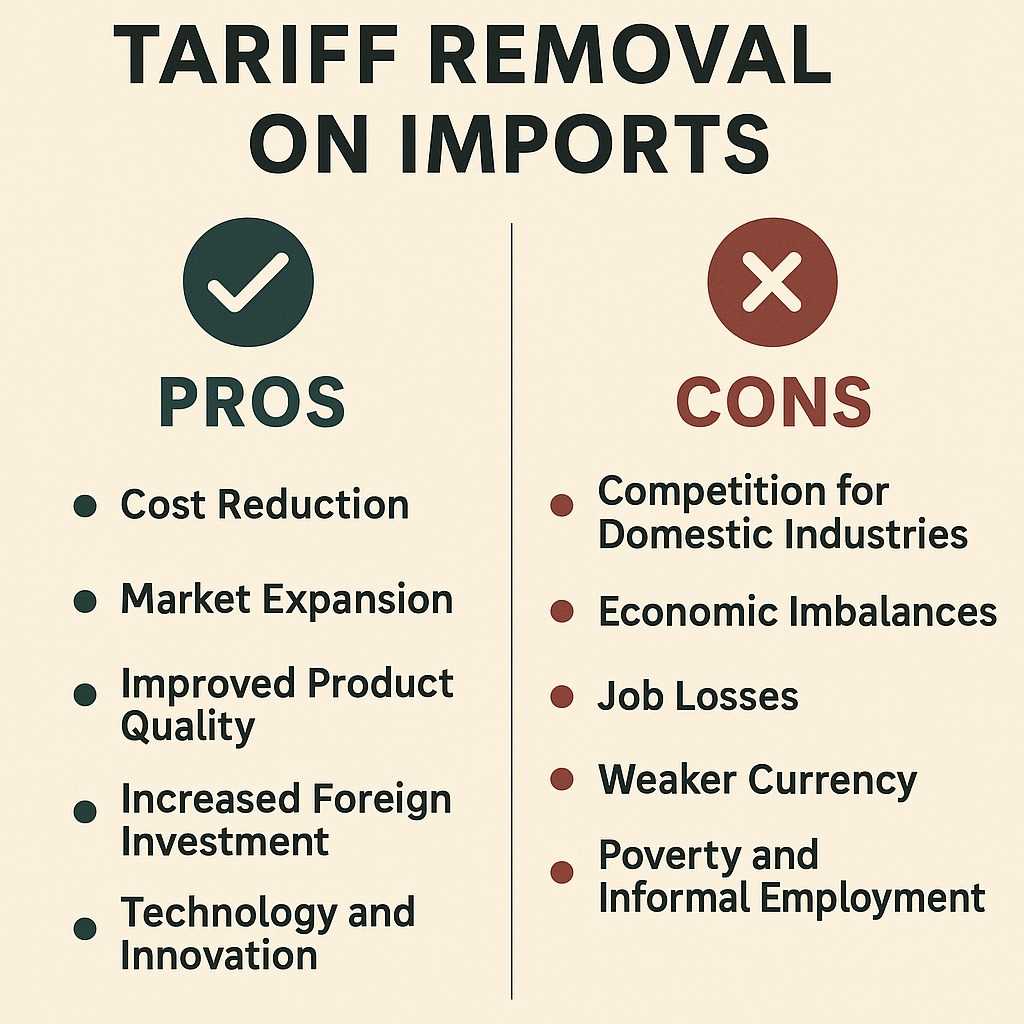
Audrey Galawu- Assistant Editor
The National Competitiveness Commission, in its analysis, acknowledges the advantages of the tariff suspension, particularly for businesses dependent on capital goods and advanced technologies.
The Commission noted that the removal of tariffs allows Zimbabwean companies to import machinery, equipment, and technology from the U.S. at reduced costs, thereby lowering operational expenses.
As the NCC states, "This development is expected to enhance the competitiveness of local firms by enabling them to offer goods at more affordable prices while modernising their production lines."
In addition to cost reduction, the NCC highlighted the potential for market expansion. The elimination of tariffs may encourage businesses to diversify their product lines and tap into both domestic and international markets.
The Commission pointed out, "Diversification fosters innovation, strengthens brand value, and enables economies of scale, giving firms a competitive edge in evolving markets."
Such expansion is particularly relevant for Zimbabwe’s agribusiness sector, where producers could explore complementary ventures such as ethanol or molasses production from sugarcane. This move could help companies reduce reliance on a single revenue stream, mitigate market risks, and appeal to new customer segments.
The report also underscores that tariff-free access to high-quality goods and technology from the U.S. can significantly improve product quality and innovation. As the NCC highlights, "Superior product quality builds brand reputation and customer loyalty, enabling them to command premium pricing and enter export markets."
Innovation in production, product design, or sustainability practices reduces costs and opens new market opportunities. Nationally, such improvements could elevate Zimbabwe’s export potential, attract foreign direct investment, and facilitate a transition from raw commodity exports to high-value processed goods, thereby increasing foreign exchange earnings and employment.
Moreover, the NCC sees potential for increased foreign investment as a result of a more competitive environment. The Commission asserts that "FDI can enhance local competitiveness by bringing in capital, technology, and managerial expertise," particularly in sectors such as mining and manufacturing.
Multinational firms can introduce advanced techniques, global standards, and efficient practices that strengthen local supply chains.
This influx of investment encourages domestic firms to improve, generates employment, and builds skills. On a broader scale, sustained FDI inflows could boost export capacity, reduce import dependence, and embed Zimbabwe in global value chains, driving long-term economic growth and resilience.
Despite these potential benefits, the NCC warns of serious negative consequences if the policy is not carefully managed. Removing tariffs exposes local manufacturers, particularly those producing import substitutes, to intense competition from cheaper American imports.
The NCC cautions, "Without tariff protection, domestic industries—especially in agriculture, textiles, and food processing—may struggle to compete with large-scale, low-cost U.S. producers." This could result in significant market share losses, job cuts, and even the closure of some businesses. This situation risks eroding Zimbabwe’s economic sovereignty and reversing efforts toward industrialisation.
Economic stability may also be compromised. The NCC further warns that increased imports, without corresponding export growth, could worsen Zimbabwe’s already unfavourable trade balance and deplete foreign currency reserves.
"Such imbalances may contribute to inflationary pressures and a further depreciation of the ZiG currency, undermining the country's economic self-sufficiency," the report states.
Employment prospects also come into question. While some sectors may benefit from job creation due to reduced input costs, there is a high likelihood of widespread job losses in industries that cannot compete with cheaper imports.
Labour-intensive sectors such as clothing manufacturing, sugar processing, and small-scale agriculture are expected to be the hardest hit. The displacement of workers could increase poverty, reduce wage growth, and drive more people into informal and less secure economic activities.
In light of these mixed outcomes, the NCC recommends a balanced and strategic approach. It advocates for a gradual removal of tariffs in sensitive sectors, allowing time for local industries to adjust to the increased competition.
The Commission also suggests, "Providing targeted subsidies and tax incentives to vulnerable sectors, facilitating technology transfer partnerships between local and U.S. firms, and investing in infrastructure and skills development" as key strategies for managing the transition.
The NCC further suggests that Zimbabwe should focus on promoting value addition by encouraging the importation of raw and intermediate goods for local processing, rather than finished products.
"Expanding export markets beyond the United States, strengthening regulatory institutions to prevent dumping, and supporting research and development are also deemed essential for maintaining competitiveness," the report concludes.
Finally, the Commission urges government to consider a regional approach to tariff reduction—negotiating collectively through organisations such as SADC or the African Union—to secure more favourable terms and avoid the risks of unilateral liberalisation.
Leave Comments